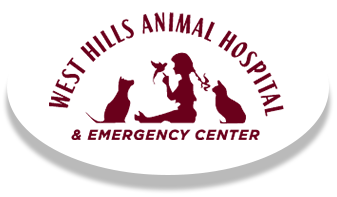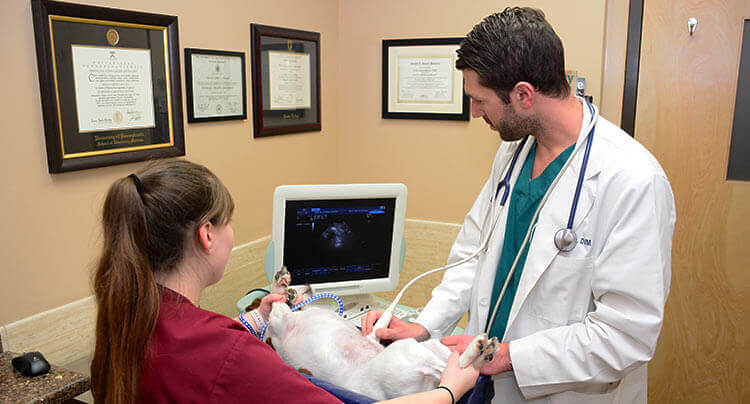Diagnostic Services
West Hills Animal Hospital & Emergency Center is equipped with in-hospital state of the art diagnostic technology to aid us in making a thorough and rapid diagnosis of your pet’s condition, either on an emergency basis or during a regularly scheduled wellness exam.
Radiology – Telemedicine Consultations 24/7 by Diplomates American College Veterinary Radiology (DACVR)
West Hills Animal Hospital & Emergency Center has teamed up with Idexx Laboratories, Inc. to offer consultations by board certified veterinary radiologists 24 hours a day, 7 days a week. This allows us to obtain consultations on diagnostic imaging at the click of a button within hours, any time of the day or night, further enhancing the care provided for your pet. Idexx employs over 35 board-certified veterinary radiologists (DACVR). Board Certification requires three years of a residency program after completion of veterinary school.
Examples of our in-house diagnostic equipment include:
- CT Scan (HD Volumetric Imaging™)
- Radiology (X-Rays)
- Allows us to assess bone and joint abnormalities and injuries
- Detects the presence of foreign material inside the pet’s body
- Used to screen for abnormalities in the heart, lungs, and urinary and digestive systems
- Used to screen for cancer
- While the vast majority of times sedation is not necessary, sedation may be recommended to limit stress to your pet and help us to get the highest quality diagnostic images.
- Ultrasound
- Allows us to visualize the architecture of your pet’s internal organs.
- Painless, non-invasive and safe.
- Performed by one of our specially-trained veterinarians with state of the art equipment in our hospital, providing convenience, expertise and immediate results.
- Typically does not require any form of sedation.
- Allows us to safely obtain tissue samples by ultrasound guided needle aspirates or biopsy.
- Echocardiography
- Ultrasound of the heart.
- Allows us to visualize the structure and assess the function of the heart.
- Use of Doppler allows blood flow to be visualized and evaluated.
- Non-invasive, safe, and usually does not require sedation.
- Helps determine cardiac changes and which medications or procedures should be utilized to help slow progression of the heart disease.
- Performed by one of our specialty trained veterinarians using state of the art equipment in our hospital.
- Endoscopy
- Minimally invasive procedure that allows our specially-trained veterinarians to view inside the pet’s body and visualize some of the organs and internal systems without performing surgery.
- Allows examination of the pet’s upper gastrointestinal tract, lungs, colon, nose and nasal passages.
- Allows us to take biopsies utilizing specialized instruments inserted through a channel in the endoscope.
- Allows us to remove many foreign bodies in the gastrointestinal tract without requiring exploratory surgery
- Minimal time your pet is under anesthesia.
- Your pet typically does not experience pain or discomfort after the procedure.
- In-House laboratory
- Staffed by skilled, trained technicians.
- Allows us to remove many foreign bodies in the gastrointestinal tract without requiring exploratory surgery.
- Screening tests for Canine Parvovirus, and Feline Leukemia and FIV viruses.
- Tonometry checking for glaucoma.
- Cytology examination of ear, skin, urine and blood specimen.
- Screening tests for Heartworm Disease and other tick-borne diseases (Lyme, Ehrlichia, and Anaplasma).
- Evaluation of blood clotting times.
Any samples not ran in-house are sent to our reference laboratory with multiple pick-ups each day, allowing for your pet’s lab results in a timely manner.
- ECG, Pulse Oximetry, Capnography, and Blood Pressure Monitoring
- Detects hypertension or hypotension (high or low blood pressure)
- Helps us to evaluate and stabilize critically ill or injured pets
- Allows us to measure oxygen saturation in patients’ blood, giving us information on how well they are oxygenating their tissues
- Capnography gives us the ability to determine ventilation status, and assess for hyperventilation or hypoventilation
- Provides a baseline reading during comprehensive physical exams for older or sick pets
- Used to monitor pets’ condition while under anesthesia






